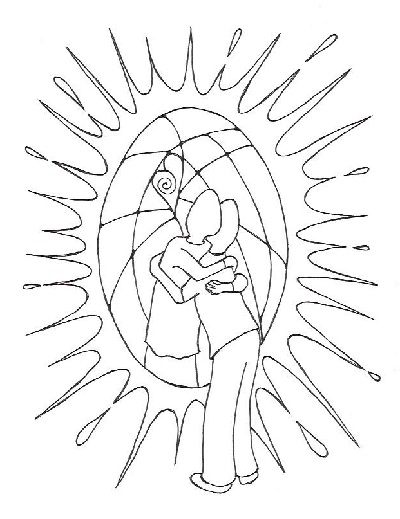Try to put aside everything you’ve learned or been told about addiction. Let’s just look at what the latest research has to say.
Whether the substance is legal, illegal, or prescribed, when substance use morphs into difficulty with stopping or inability to stop using, it’s become addiction and a medical condition. In recommended priority order, the treatment for this medical condition is medical care, counseling, and support.
 I urge clients to first get addiction-savvy medical care. Then I provide the secondary tier of treatment: counseling. Traditionally, clients are invited to take their time in counseling because having insights and making changes takes time. However, because 1) substance use itself can be endangering, and 2) symptoms of substance use disorder are criminalized, we’re not allowed time.
I urge clients to first get addiction-savvy medical care. Then I provide the secondary tier of treatment: counseling. Traditionally, clients are invited to take their time in counseling because having insights and making changes takes time. However, because 1) substance use itself can be endangering, and 2) symptoms of substance use disorder are criminalized, we’re not allowed time.
Paradoxically, the desired treatment outcome for most people – abstinence – takes time to achieve. On day one, however, authorities can demand proof of abstinence by requiring negative urine drug screens. People can lose jobs, custody of their children, scholarships, prescriptions for medications, even their freedom if they don’t abstain. But if people could abstain, they wouldn’t have the defining symptom of this medical illness, i.e. inability to abstain.
Regardless of this injustice, how can a person attempt to achieve and sustain abstinence as quickly and effectively as possible?
According to research by NIDA, people use substances for these main reasons: to 1) feel good, 2) feel better, 3) do better, and 4) feel connected.
These are normal, reasonable, understandable needs and wants. But when substances meet these needs and wants, and the person abstains, then the needs and wants aren’t met. Add the brain automaticity that occurs through addiction and, logically, the person would return to use.
How can we help people get understandable, human needs and wants met by substances without substances? How can we help them 1) feel good, 2) feel better, 3) do better, and 4) feel connected?
Research suggests that there is a finite set of very specific skills – a protocol – people can learn to equip themselves to do for themselves what substances did. It is not necessary for people to “be ready to change,” or “want to feel better about themselves.” They simply need to learn the skills and apply them. In the contest between the power of these skills vs. substance use, the skills simply have to be mastered at a 51% level. A 51% skills level may overpower a 49% brain-based return to substance use.
I’ve been a counselor since 2014 and been able to offer research-informed counseling in private practice since October 1, 2018. My anecdotal data suggests, so far, with deliberate effort and practice, these skills can be learned in about 8 weeks, beginning with 1 week of daily appointments, followed by 3 individual sessions and 1 skills-focused group session (not general group counseling) per week, daily homework, and daily text contact. Less than that simply doesn’t achieve many clients’ ends in mind, i.e. abstinence and negative urine drug screens. It makes sense that the traditional one-hour session of counseling per week would be ineffectual given the condition is present 168 hours per week.
Some all-or-nothing statements are appropriate here: No one wants to have problems with substances. Everyone wishes they didn’t. Almost everyone minimizes the significance of substance use. Hardly anyone wants to quit using substances. Everyone dreads what comes up when they stop using substances. And yet. While some small groups and communities of people tolerate substance use, most laws, policies, and social norms do not. However much we might wish things were different, the reality is that, to protect their freedoms in the U.S. under current conditions, people may need to be free of substances. Health-wise, for many substances, there actually is no safe level of use. Further, the interaction of substances, including medications, unfortunately, can cause injury, even death.
Ideally, people would slowly taper in custom-selected methods that meet their needs and wants while tapering out substances that do the same. Unfortunately, the endangering nature of substances usually doesn’t allow for that time and criminalization doesn’t permit it.
The skills are selected and offered based on the weight of research in their favor, and in an order that respects and recognizes 1) the realities of the reasons a person uses substances, and 2) the realities of the challenges they will face when they stop. Instruction, coaching, and practice with the skills are all offered quickly and efficiently.
And the skills are offered in the context of kindness. At essence, what helps a person with substance use and other issues is an on-going, kind, thoughtful, informed, inner conversation. “Tough love” isn’t really love because it hurts. In our work with ourselves and each other, we do our best to practice love love.
Note that I make no moral commentary. Substance use isn’t good or bad. People who use substances aren’t good or bad. In today‘s America, substance use endangers one’s freedoms. The offering of skills is simply a practical approach to regaining one’s freedom from substances and their use.
. . . . .
“Sun of Self-Kindness” coloring page by Nichol Brown. Coloring page .pdf opens in another tab here.
Anne Giles, M.A., M.S., L.P.C., is a counselor in private practice in Blacksburg, Virginia. She can provide counseling services to residents of Virginia only.
This content is for informational purposes only and is not a substitute for medical or professional advice. Consult a qualified health care professional for personalized medical and professional advice.


